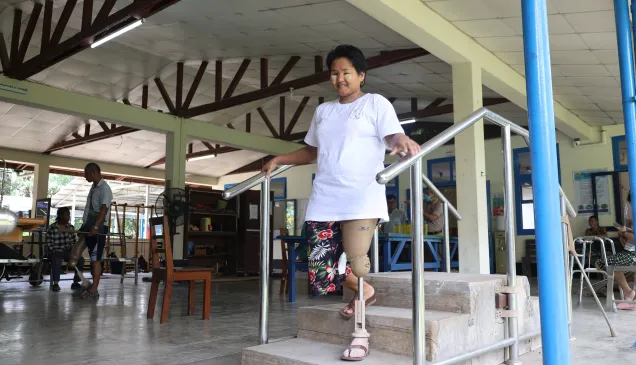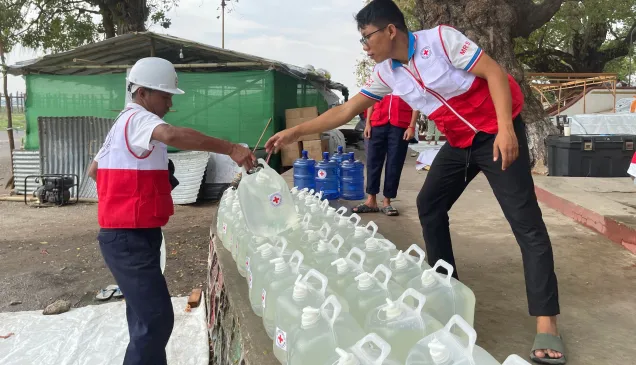Myanmar: ICRC strives to ensure ample COVID-19 response
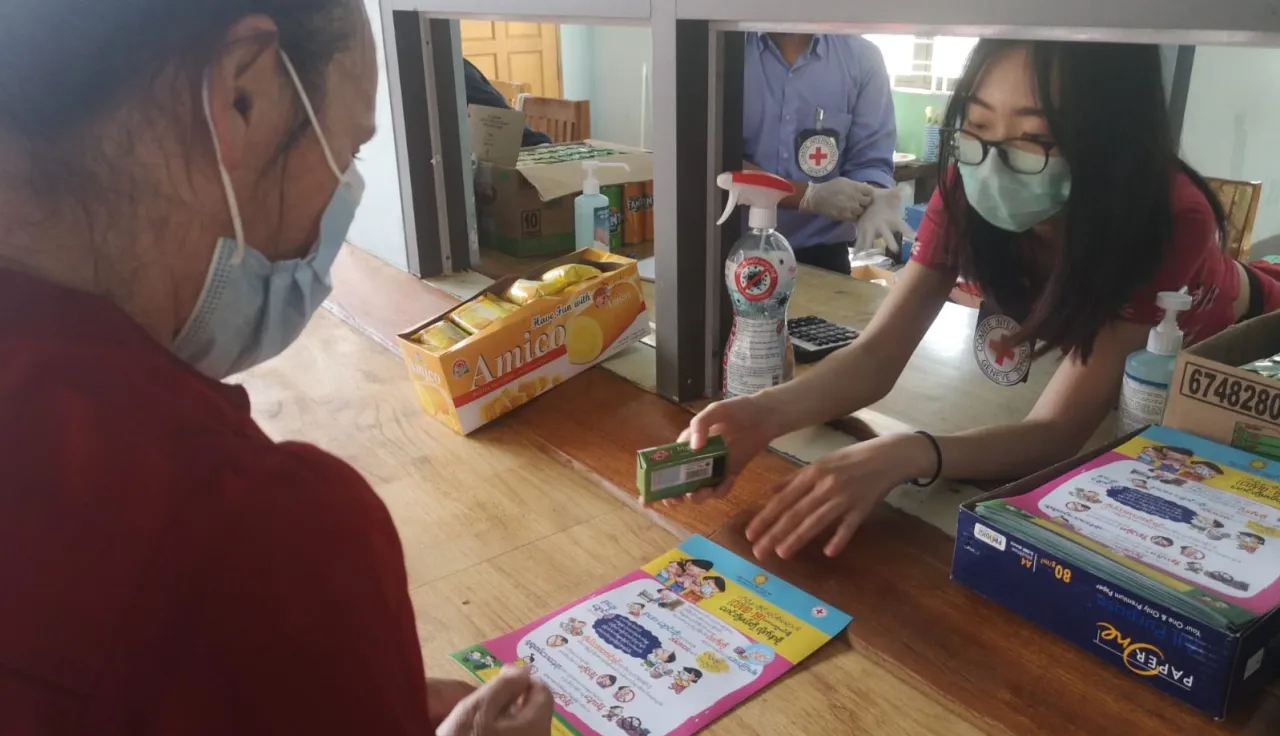
In Myanmar, and many other countries where the International Committee of the Red Cross (ICRC) is present, the threat of COVID-19 is particularly acute for communities living in areas affected by armed conflict and other situations of violence, as well as for some particularly vulnerable groups such as internally displaced persons (IDP), people deprived of freedom, or migrants.
In support of the Myanmar government's actions to prevent and mitigate the risks associated with COVID-19, the ICRC, along with the Myanmar Red Cross Society (MRCS) and its other partners from the International Red Cross and Red Crescent Movement, is striving to ensure that people affected by armed conflict and other situations of violence are not left behind, and they receive the assistance and protection to which they are entitled in line with the international humanitarian law.
Between March and mid-June 2020, Myanmar's Ministry of Health and Sports has confirmed over 300 positive COVID-19 cases. Despite the low-infection rate in the country, the ICRC remains concerned for tens of thousands of families affected by armed conflict and violence, including displaced people living in temporary shelters and IDP sites.
In response to these concerns, across the country, the MRCS, as an auxiliary to the public authorities, is providing valuable support to the national COVID-19 response through its network of staff and volunteers activated in 277 townships.
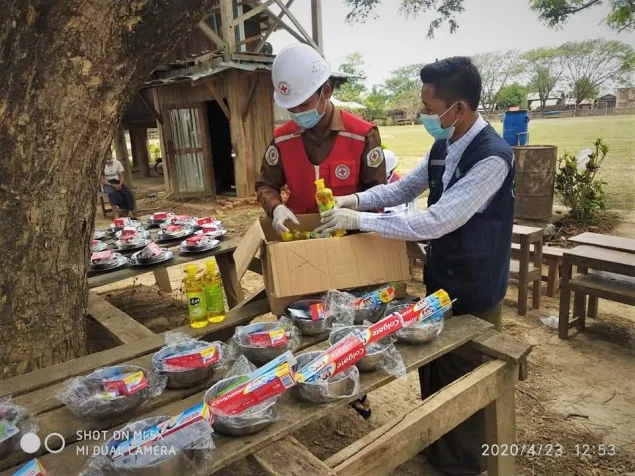
Hygiene kit donation in Myitkyina, Kachin
The International Federation of Red Cross and Red Crescent Societies (IFRC) - with the mandate to scale up for disasters and pandemics - is supporting the MRCS through the international mobilization of financial, technical and logistics resources.
For the ICRC, ongoing programmes have been swiftly adapted to the new realities of the virus in order to ensure the continuity of life-saving activities such as food distributions, or the evacuations of weapon-wounded civilians in areas affected by conflict.
At the same time, in coordination with the relevant authorities and the MRCS, the ICRC rapidly developed a wide range of COVID-19-prevention activities in the areas of health care, water and habitat, or protection.
The ICRC has also engaged non-state armed groups, ethnic health organizations, religious leaders and local media to provide assistance and convey COVID-19 prevention messages to communities.
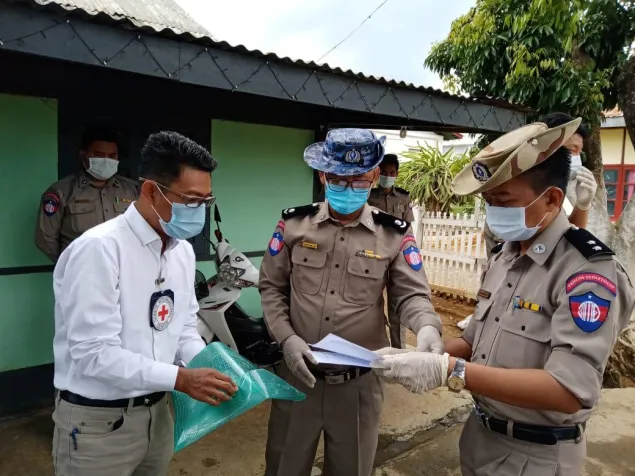
Lashio prison donation
The ICRC also considers that special attention is required for prison populations who face a higher risk of contamination when facilities are overcrowded, have poor hygiene, or lack ventilation. The ICRC supported prison authorities for prevention and infection control in detention facilities, as well as the organization of the safe return home of 2,500 detainees released following the annual presidential pardon.
ICRC COVID-19 response in Myanmar from ICRC on Vimeo.
Our teams are working to improve living conditions in existing and new IDP sites by improving basic shelter, access to safe water, and building basic latrines for better hygiene.
The ICRC plans to adjust its economic security programmes to contribute to addressing these gaps in the coming months, whether through cash programming or covering basic humanitarian needs, so that those who are most affected and exposed to the impacts of COVID-19 are less vulnerable.
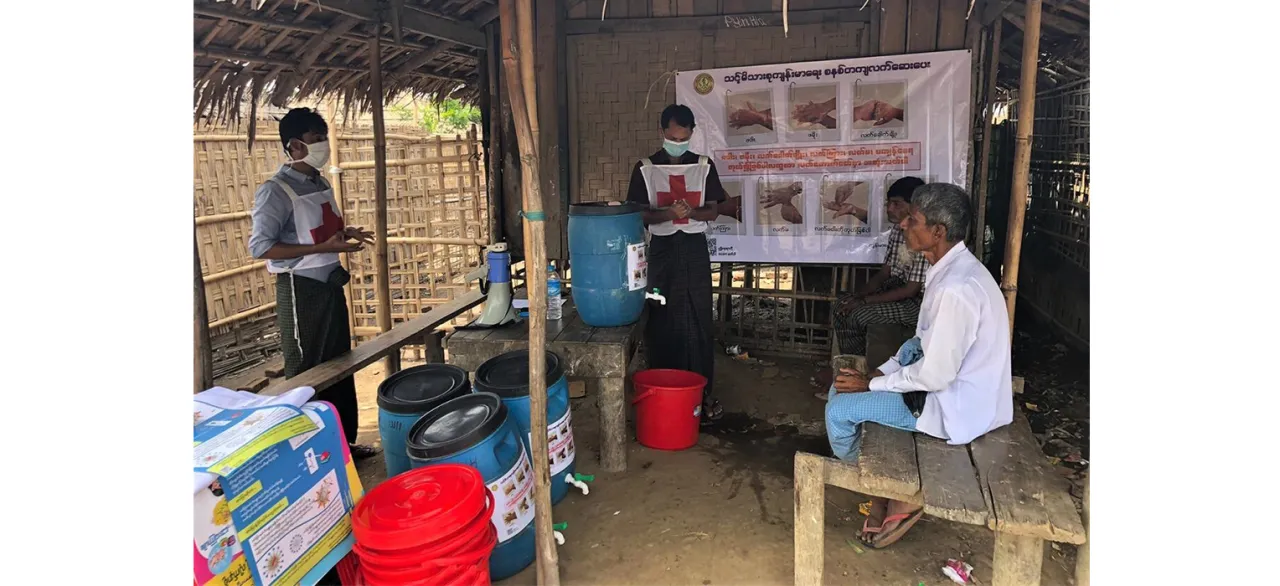
"In the new context of COVID-19, it remains a top priority for the ICRC to continue protecting and assisting people affected by armed conflict and violence while reminding all parties of their obligation, under the International Humanitarian Law, to ensure access to health care to all communities," explains Stephan Sakalian, resident representative for the ICRC in Myanmar.
"It is the responsibility of everyone to act when faced with such a global and far-reaching crisis."
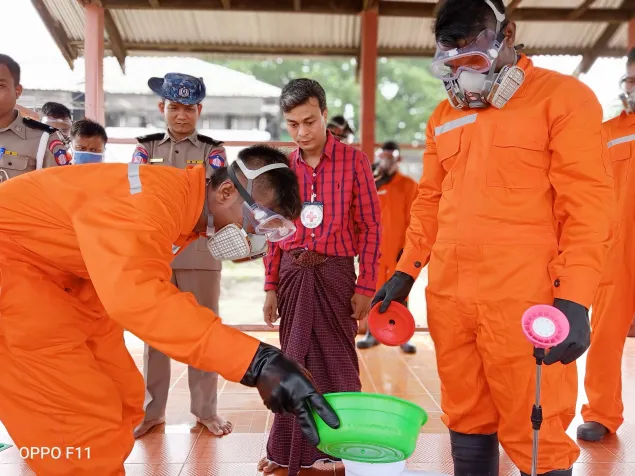
Sittwe prison donation
"We also need to join the efforts of the authorities, Myanmar Red Cross Society, civil society and the whole humanitarian and development community to prevent and mitigate the risks associated with COVID-19 in Myanmar. It is the responsibility of everyone to act when faced with such a global and far-reaching crisis," he added.
"It is the responsibility of everyone to act when faced with such a global and far-reaching crisis"


